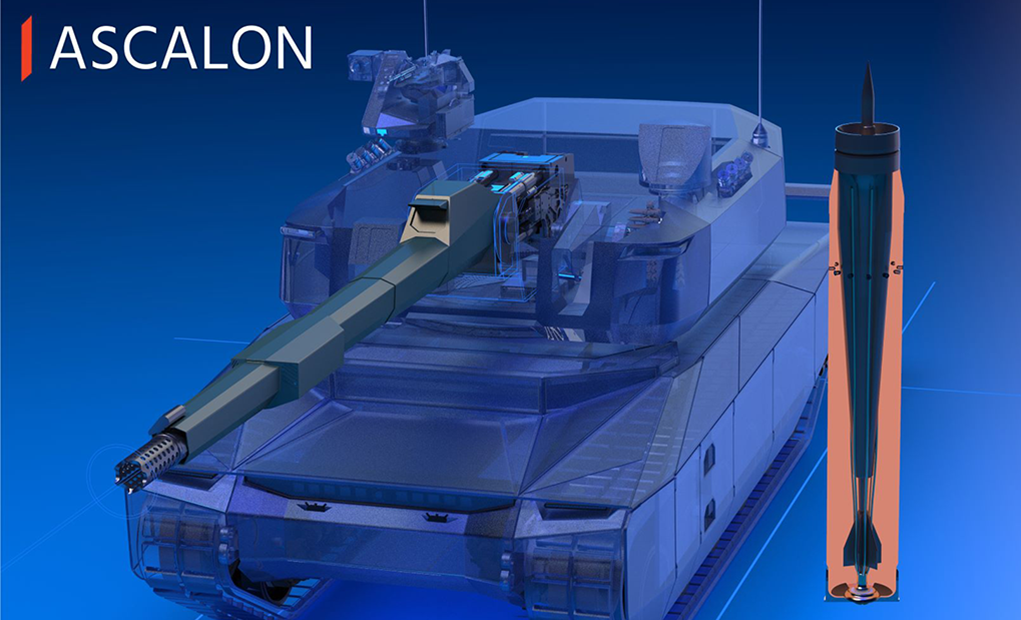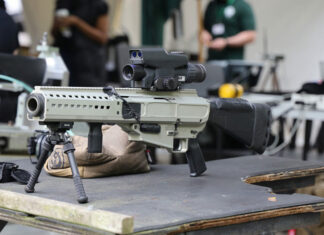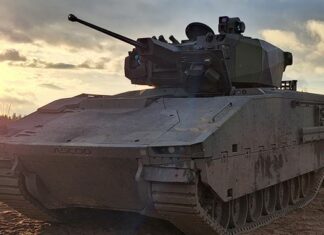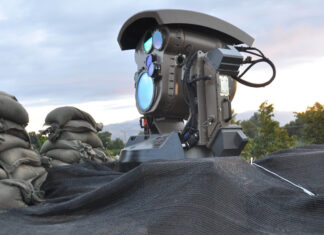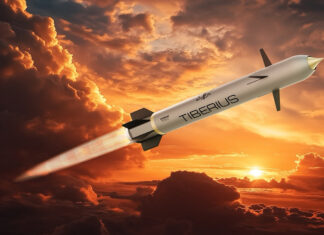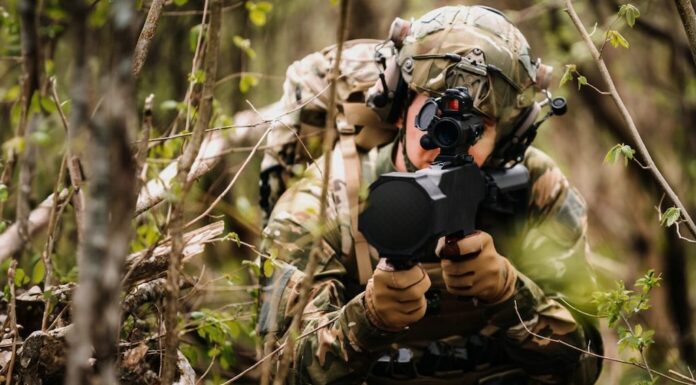Nexter-KNDS unveiled today an innovative concept for a large caliber gun system for main battle tanks designed to overmatch the heavy threats expected in the 2040-2050 timeframe. The “Autoloaded and SCALable Outperforming guN” (ASCALON) concept is designed to cope with the latest generation of heavy armor while staying ahead of the threats of the next half-century.
Based on know-how gained with battle tank armament, illustrated by the Leclerc’s 120mm smoothbore auto-loading gun system and associated ammunition, the new weapon maximizes energy levels with compact weight and volume, utilizing cutting edge technologies such as telescoped ammunition, and maturity achieved during firing campaigns with a 140mm caliber gun.
Next-generation large-caliber weapons will have to be able to guarantee the armed forces tactical superiority not only through the next decade (2035) but also for the following decades.
By 2040-2050, allied nations will potentially face the return of high-intensity confrontations. In the land domain, armies will have to equip themselves with modern means for tactical superiority, manned or unmanned, integrating numerous systems, reaching the highest levels of protection for the crew, and the capacity to neutralize the adversary. Faced with numerous and hardened threats, winning the battle from the outset will require shooting faster, farther, and with a higher destructive capacity on the first shot, while reducing logistical and ergonomic constraints.
The company expects the technical solutions to be fully mature by 2025, based on an open architecture design to serve as the basis for cooperative development under the Franco-German Main Ground Combat System (MGCS) program. This concept lays the foundations for the future European battle tank gun and ammunition standard, drawing on previous experiences with allies, such as in the 140mm Future Tank Main Armament-Programm (FTMA) gun program.
What makes ASCALON different from today’s tank guns?
A wide choice of terminal effects: The enlarged caliber enriches the range of ammunition for an optimal effect on the target thanks to rods of unparalleled length. It also makes it possible to foresee intelligent ammunition (missiles, projectiles, and other munitions) for firing beyond the line of sight (BLOS/NLOS), which will provide new capacities while reducing the vulnerability of the tank.
Increased firepower: An optimized chamber offers exceptional operational performance with an energy level close to 10 megajoules for kinetic ammunition while remaining below the internal pressure level of current calibers. This untapped potential will enable the weapon to evolve to a performance class of 13 megajoules capable of addressing any threat over the next 50 years.
A controlled blast effect: an innovative muzzle brake, adjusted external pressure fields, and an optimized firing impulse will reduce the blast effect of the shot, reducing the safety distance around the tank, enabling dismounted troops to operate closer to the tank, particularly in urban areas.
Compact ammunition: With a maximum length of 130 cm, ASCALON telescoped ammunition will be more compact than an equivalent caliber ammunition while maintaining maximum rod length. It can be used with automatic loading systems as the current Leclerc tank has, or stored and integrated into new, remotely-operated turrets as foreseen in some configurations of the MGCS.
Lighter Platforms: thanks to a controlled impulse, ASCALON will have With reduced recoil and lower acceleration generated by the gun, ASCALON could be mounted on platforms weighing less than 50 tons while exceeding the performance and lethality of today’s main gun.
For its scalability and growth potential, ASCALON offers a technological and tactical capability that, once matured, could become the standard gun for future heavy battle tanks for the coming decades, similar to the smoothbore 120mm ammunition standardized by NATO in the 1980s. While the 120 was based on German know-how, ASCALON represents a major contribution by the French industry to achieve a new common solution for France and Germany. However, for wider deployment, its maturation will have to be based on the European defense technology industrial base.

